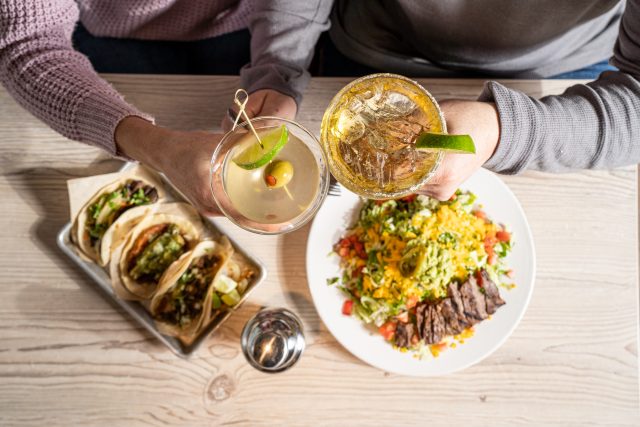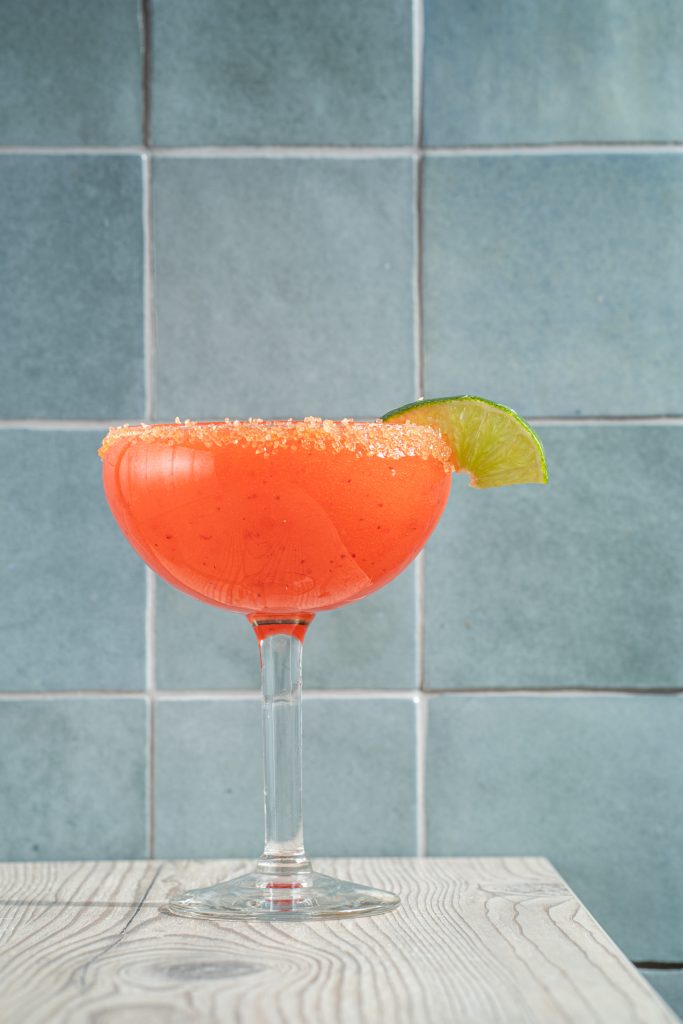
When Pat McGaughran opened The Rio in Fort Collins in 1986, it was just 19 tables and a small closet where he and a couple buddies made margaritas for a small but vibrant crowd of musicians and hippies. McGaughran and his then-partners, Andre and Steven Mouton, had moved up from Houston hoping to escape the summer heat and enjoy the leisurely pace of a Colorado college town. The Moutons played in a reggae and ska band and were chasing the dream, while McGaughran worked in HVAC and was looking to sink his teeth into something where he could call the shots.
None of the three had any restaurant experience, though all of them grew up in large Catholic families. McGaughran was the seventh of eight children while the Moutons were two of a whopping 15.
“With big families like that you never went out to eat but you were always cooking for lots of people,” says McGaughran, noting that he lent a hand in both his own home kitchen and over at the Mouton’s place while still a kid.
Fresh out of high school, the trio would routinely dip down to Mexico to set up hammocks and enjoy the beaches of anywhere the scene popped.
“We’d knock around Mexico and discover that the culture and the food is just so warm,” says McGaughran. So when a friend moved to Fort Collins in the early ’80s, McGaughran says they took the opportunity to set up a new crash pad.
There are now five locations of The Rio, with the entire company employing nearly 500 people. Boulder was the second to open, with the original space on east Pearl debuting in 1989. It’s been in its current digs (1101 Walnut St.) since 1997.
In 2019, the massive three-story restaurant on the corner of 11th and Walnut received a full-scale makeover. The main bar was relocated to the center of the restaurant and the lounge area was assembled on the second floor. The rooftop was the least altered, though the springtime staple was rearranged for greater efficiency.
The renovation has certainly helped situate The Rio among Pearl Street’s continued trend into chicness. “They referred to us as the tired old party animal,” says McGaughran with a laugh. “It was just kinda a call to action. As far as I’m concerned we’ve got the best corner in Boulder. What you need to do is own the space you’ve built.”

McGaughran says that the changes are largely cosmetic. The bulk of Rio’s menu has gone largely unaltered since its debut. The fajitas are still the star of the show and the beans, rice and tortillas are still prepared from scratch each morning. Culinary Director Erich Whisenhut, who has held the position for 22 years, spices things up with rotating taco specials, salads and tostadas. The margaritas are still a big draw, though the food has become more of a main attraction. Don’t leave without getting the diabla shrimp empanadas.
McGaughran insists that the prodigious durability across nearly four decades is based in the restaurant’s culture.
“One of our main motivations from the start was to create a decent place to work. Can we do something where we feel good about what we’re doing? That’s really been a compass for us,” he says. “The focus is creating an atmosphere and experience that’s welcoming. And that changes a bit over time.”
While The Rio’s claim to fame was once that it served more Jose Cuervo than any restaurant group in the country, McGaughran says “that distinction has become a little bit more irrelevant.” These days, servers are equipped to recommend specific varieties from a large selection of tequilas, mezcals and sotols with aplomb. As diners have become more sophisticated, so too has The Rio.
McGaughran says the demographic is still the revelry-seekers. “We provide sanctuary from the troubles of the world while serving the best dang Mexican food this side of the Rio Grande,” he says with a grin. “I think that the notion of sanctuary has always been fundamental to our longevity.”
While The Rio is anything but subtle, it has remained an institution by implementing subtle changes with finesse. McGaughran seems to have a supernatural sense for knowing when the iron is hot and having the vision to keep joy as the place’s foundation.
“They celebrate life here, they celebrate death here, they meet their future ex here,” he says.














